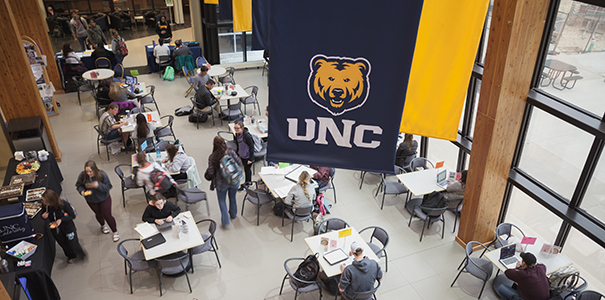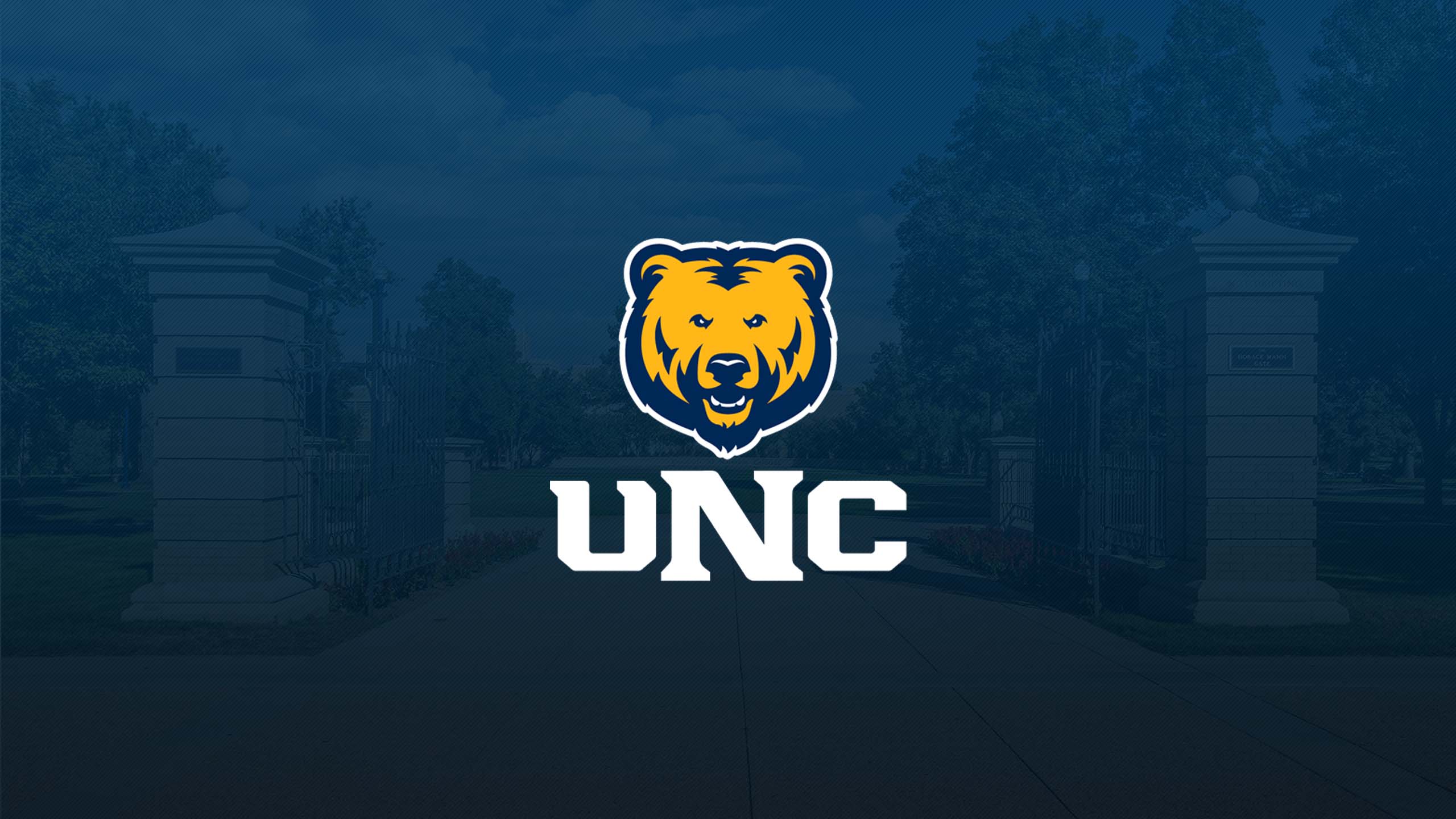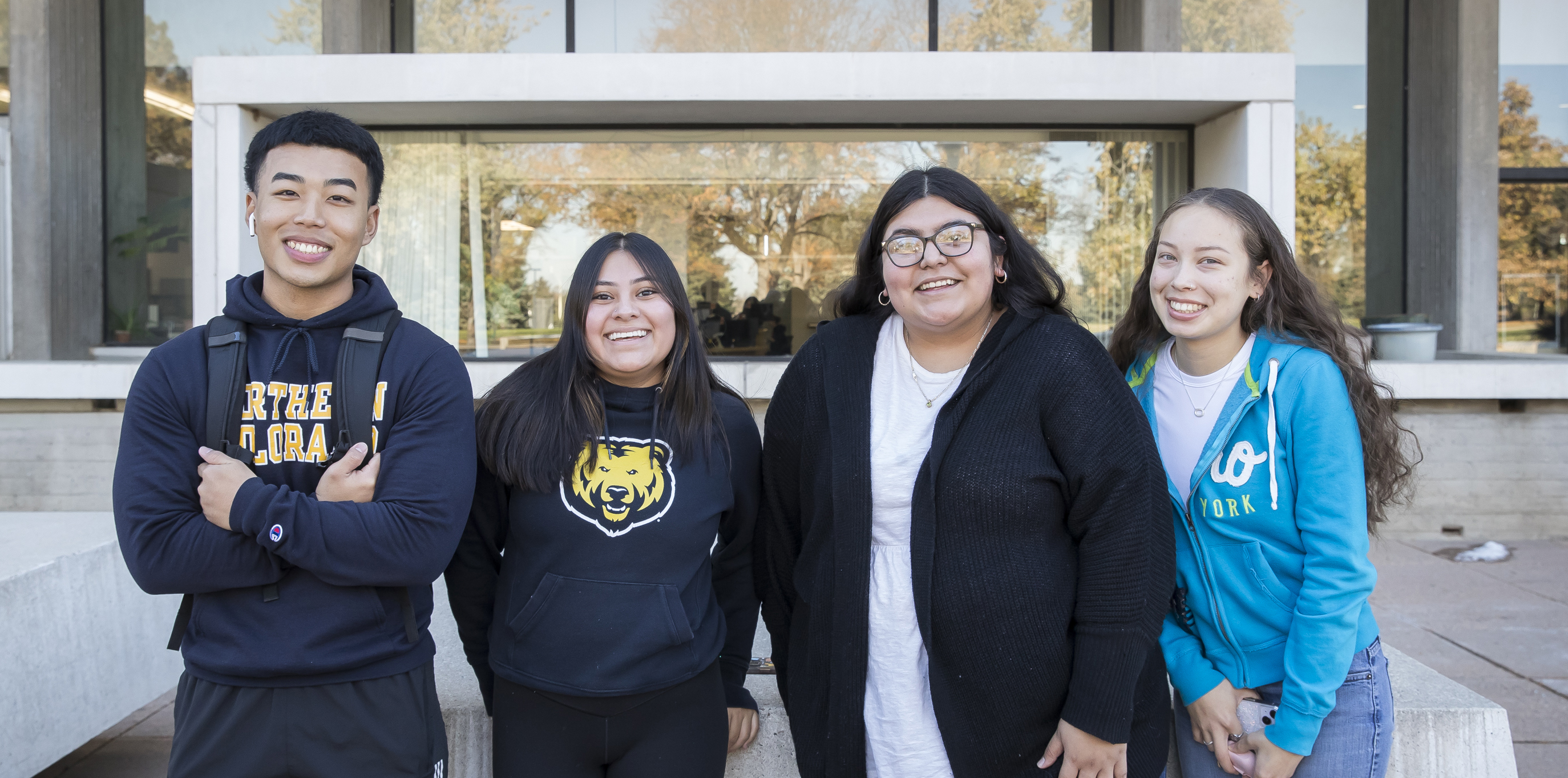Also featured in this article:
The University of Northern Colorado has a lot to celebrate during the sixth annual
national First-Generation College Celebration this November. Not only did UNC have its highest fall-to-fall retention rates for first-generation
students in over a decade this year, the university was also recently ranked number
one in social mobility in Colorado according to CollegeNet’s Social Mobility Index, an indicator that the institution educates a high number of students with family
incomes below the national median at lower tuition and graduates them into good paying
jobs.
“The fact that we’ve seen recent gains in our retention rates, particularly among
our first-generation students, is exciting,” said Cedric Howard, UNC’s vice president
of Student Affairs and Enrollment Services. “We hope what we’re seeing is the result
of our efforts to put our students at the forefront of our work in a manner that nurtures
their sense of belonging and engagement and ultimately enhances their experience and
success.
“One of the most significant factors of quality education is to measure the university’s
ability to demonstrate its return on investment to a student,” Howard continued. “Our
social mobility ranking demonstrates our ability to provide access to deserving students
from limited income backgrounds while graduating them and preparing them for better
paying jobs than previously afforded to their families.”
As more than 40% of UNC's undergraduate population are first-generation students,
defined as individuals whose parents and/or guardians did not complete a four-year
degree, the university is intentional in its efforts to provide programs and resources
to help support them, including competitive federally funded TRiO programs that prioritize first-generation students in their pursuit of a college degree. In
addition, UNC's Soar program also recently expanded support and personalized coaching
to further facilitate academic success for first-generation students not served by
TRiO programs.
Also new this year are two resources that were created with first-generation students
in mind, but are available to all students through UNC’s learning management system,
Canvas. Success at UNC is a digital one-stop site for information, tips and resources; topics that students
frequently ask about like career and money, academic support, technology support,
student wellness and academic policy. iGrad is an on-demand personal finance education resource designed to empower students
to make effective personal finance decisions and start their path toward financial
wellness. According to Stephanie Torrez, assistant vice president for Student Academic
Success, financial concerns are one of the main reasons students wind up leaving college
and research shows that financial literacy programs can decrease financial stress
and improve academic performance.
“Both of these new programs were designed to promote success, inside and outside the
classroom, while students are in college and after they graduate,” Torrez said. “These
kinds of resources benefit everyone, not just first-generation students. Making things
like this available is one of the many ways we demonstrate our commitment to students.”
The First-Generation College Celebration, observed on Nov. 8 every year, was launched
in 2017 by the Council for Opportunity in Education (COE) and the Center for First-generation Student Success, to shine the spotlight
on individuals who were the first in their families to attend college. The date is
significant as it marks the 1965 signing of the Higher Education Act (HEA) which helped
millions of first-generation students access an education beyond high school.
To learn more about how UNC serves and supports first-generation students, explore
some of our resources, including special scholarships and mentoring programs that focus on promoting student
success, and read about some of our current first-generation students and what they find most helpful.
From First-Gen to College Advisor

Oliver De La Cruz
Ever since Oliver De La Cruz was a child, his parents drilled a concept into his mind
– after high school, he was going to continue his education and go to college.
“My parents worked a lot of labor jobs, and they didn’t want that for me,” De La Cruz
said. “Their influence drove me to pursue higher education."
De La Cruz quickly found out, though, that the idea of going to college and actually
attending a university was very different, and at times, intimidating. He is a first-generation
student, so he had a lot to learn about the college environment.
“It was pretty scary because I was totally new at it,” De La Cruz said. “I didn’t
know anything about college, I didn’t know how much it cost, I didn’t know what I
wanted to study, I didn’t even know what the terms ‘major’ and ‘minor’ meant. That’s
how new I was.”
Through trial and error, De La Cruz eventually learned how to manage the college experience,
and once that happened, he was on a path to earning not just one, but three degrees.
He started off getting his associates degree at Aims Community College, then he received
his bachelor’s degree in Journalism at UNC in 2016 and his master’s in Communication
in 2019.
“Both of my parents are proud of me. Especially my mom, she always brags about me
to all of her friends,” De La Cruz said.
Knowing how rewarding and valuable higher education is, and not as terrifying as it
first appears, De La Cruz now helps current first-generation UNC students through
his work as a success coach and advisor in the Soar program. Soar provides students
involved in specific programs and first-gens academic personal support by teaching
them skills necessary to make self-motivated academic decisions.
“We’re here to help out students, we’re not here to make them feel any less just because
they’re first-gen students,” De La Cruz said. “The primary role is to serve students
so if they have any questions, we are here to help with anything.”
De La Cruz and his colleagues meet with first-generation students four times throughout
the semester first to get to know them and find out what their goals, passions, interests
and values are, then to check in and see how they’re progressing.
“We introduce them to a lot of resources like the Tutorial Services, the Writing Center,
Counseling Center and the Center for Career Readiness,” De La Cruz said. “We also
introduce them to all of the clubs and organizations offered at UNC and the cultural
centers so that they get connected both academically and socially.”
De La Cruz said the biggest takeaway he wants all the first-generation students he
advises to know is that it’s OK to ask questions.
“At first, I was scared to ask questions too,” De La Cruz said. “I thought if I ask
a question, this is going to sound silly, or dumb and people are going to think I
don’t know anything. But you won’t know how to handle college until you ask.”
If it weren’t for De La Cruz’s drive and persistence, he wouldn’t be where he is right
now – a college advisor with three degrees, who was once himself a first-generation
student, helping others live out their dream too.

Jordan Scadden
What is your year/major?
Graduate Student, MBA - Human Resource Concentration
Why did you choose to go to UNC?
I decided to go to UNC because they were one of the most affordable colleges and one
of the most diverse colleges. When I first visited UNC, I did not think that I would
like the campus or the area but when I came, I fell in love with the environment and
the people. The campus was very welcoming and open, so I knew that was one thing that
I was going to need when I was leaving home. Another big thing was how diverse this
campus was, I came from a high school in Denver that was very diverse and coming to
UNC made me feel that I could keep that with me. UNC had a lot to offer regarding
education as well, which is why I decided to stay at UNC for my master's as well.
As a first-generation college student, was there someone or something that helped
you realize your path to college?
As a first-generation college student something that helped me realize my path to
college was simply seeing my mom proud. She has done so much for my sisters and I
as a single mom to help us get to college. Even though she couldn’t obtain a bachelor’s
degree, she has always encouraged my sisters and I to get our degrees so we can have
more opportunities in the world. And that has helped us today. My older sister has
gotten her master’s degree and is now a middle school teacher at the age of 24, my
younger sister is now gradating with her bachelor’s degree in business at 21 and I
will be finishing my master's in May at the age of 22. These accomplishments are really
what encouraged me to start my path to college and continue past my bachelor’s degree.
What does it mean to be a first-generation college student?
Being a first-generation student means that there are many opportunities that are
open to me. It means that there is a new look into life and a new look into opportunities
that my mom never got. Being a first-generation student was scary at first because
you are going into something blind and do not think that many other students are like
you, but you are approached with so much support.
What is your professional goal after higher education?
One of my professional goals after higher education Is to work in the NFL. I’ve always
enjoyed watching football growing up and continued loving it when I grew older. I
think that being able to work in the logistics side of the NFL would be such a huge
accomplishment, because I am a female wanting to work in a field that is dominated
by males. One of my other goals is to simply help and support people, I love being
able to help those around me and see a smile on their face when I do, which is why
I essentially went into Human Services.
What has been most helpful to you since coming to UNC?
Since coming to UNC, the most helpful thing had been the members in the Soar office
on campus. During my undergraduate year their staff really helped me adjust to life
on campus and really helped me figure out my path in my education life and they continue
to help me while I complete my master’s degree.
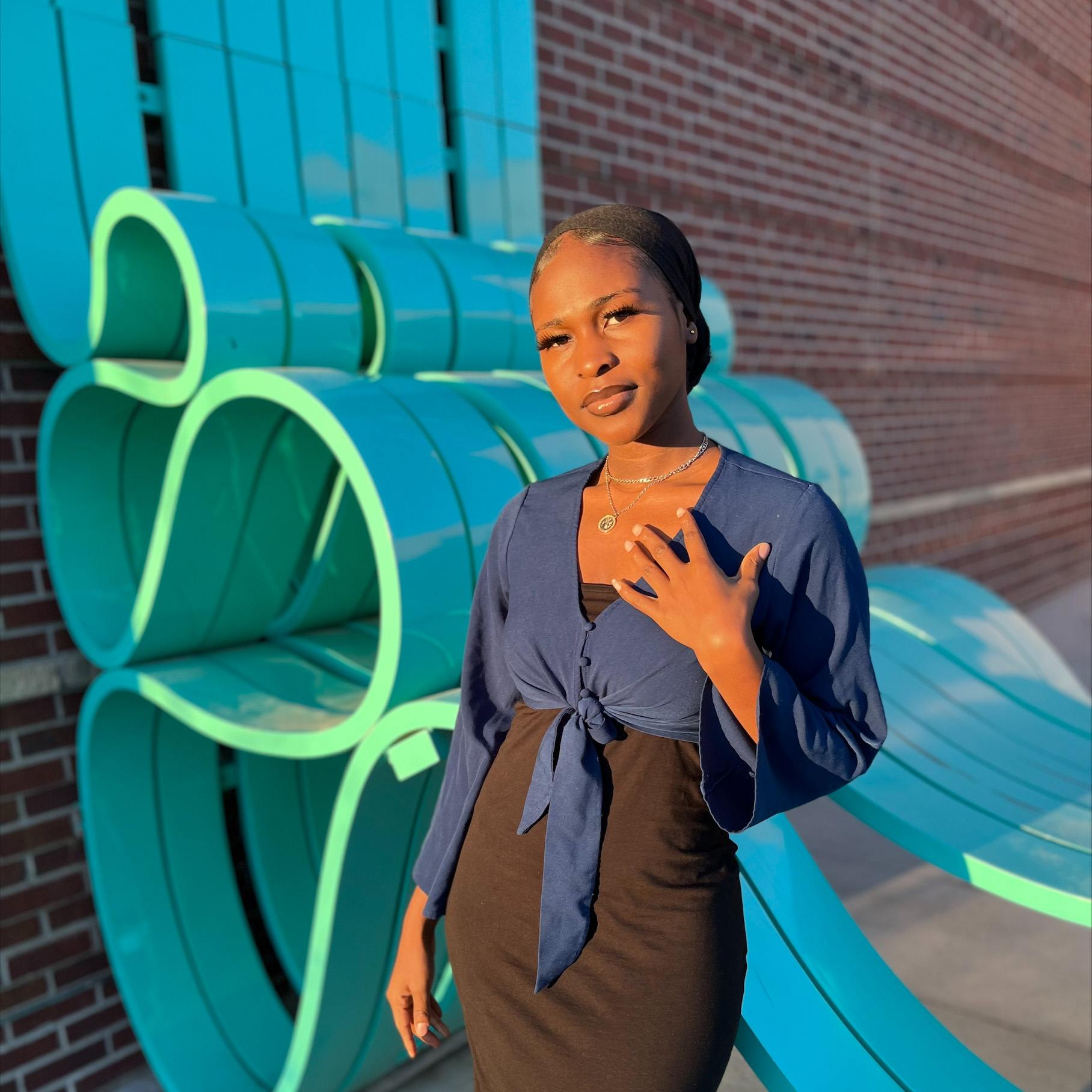
Muniratu Tanko
What is your year/major?
Criminal Justice, double minor in Sociology and Communications
Why did you choose to go to UNC?
I chose UNC mainly because of the cost of attendance and how the environment felt
small and big at the same time.
As a first-generation college student, was there someone or something that helped
you realize your path to college?
My college advisors played an important role in how I ended up applying for college.
I realized that I wasn’t only doing this for me, but my family as well. My big sister,
Adjara, also played a huge role in my decision to apply for college because I looked
up to her and followed her path in going to college after high school.
What does it mean to be a first-generation college student?
Being a first-generation student to me means being resilient and willing to take a
risk that people in your family aren't able to take for one reason or another. It
means being chosen to break a cycle. It means not knowing how you're going to get
it done but having faith that you’ll get it done.
What is your professional goal after higher education?
Working with young people in the criminal justice system is my primary goal. I'm not
quite sure what I want to accomplish, but I do know that I desire to have a positive
influence on people's lives, whether that be by running a charity organization or
working for the UN.
What has been most helpful to you since coming to UNC?
Regarding my undergraduate career, Reisher, the Denver Scholarship foundation has
been one of the most beneficial experiences. It has been a gift to be able to attend
school without worrying about the cost. As a first-generation college student, I value
and am grateful for the opportunity. It has also been beneficial to get more active
in clubs and discover comfortable areas on campus.
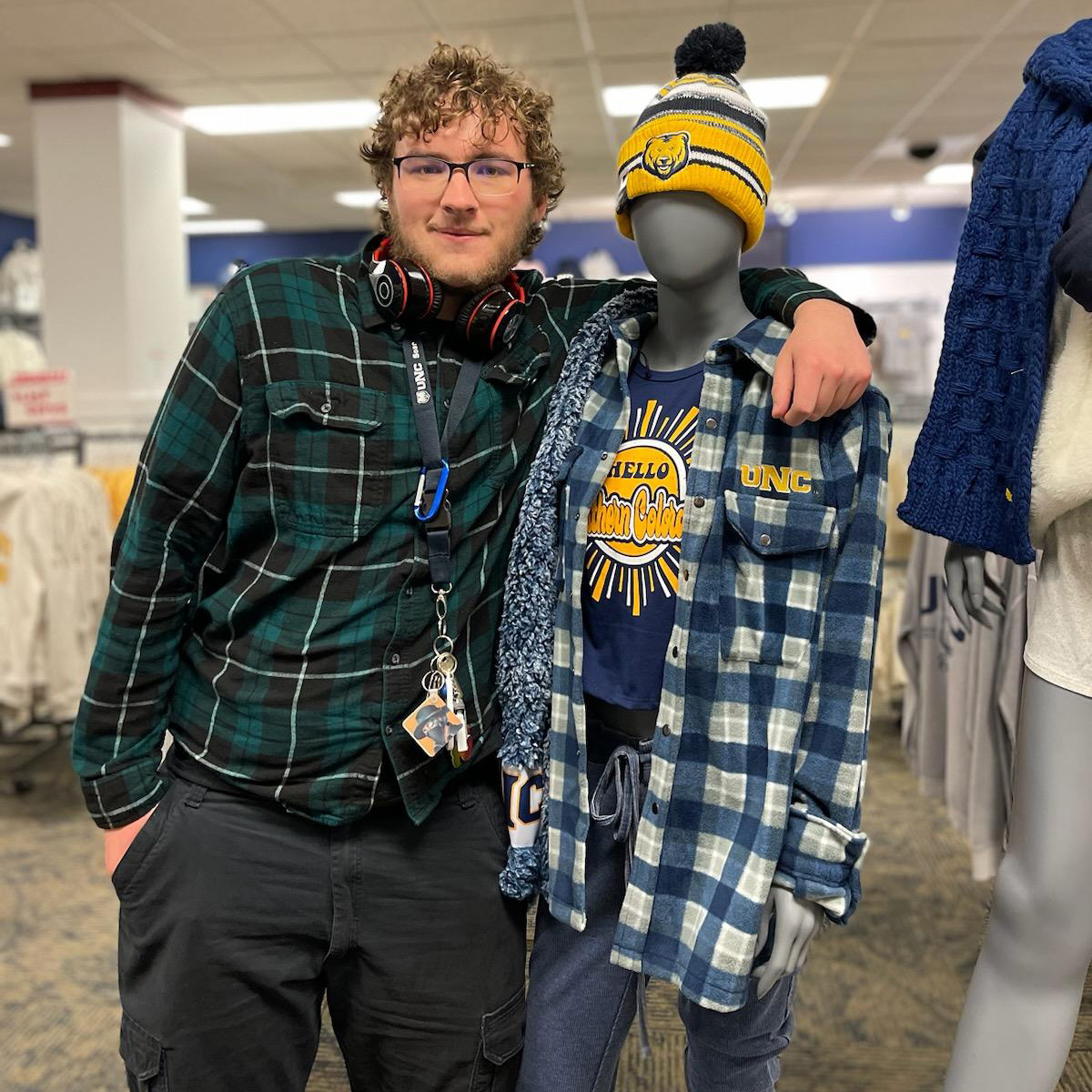
Cody Field
What is your year/major?
Freshman, Psychology
Why did you choose to go to UNC?
I chose to attend UNC because friends of mine were already up here, and I just really
enjoy the campus. It’s gorgeous, especially in the fall, and all my classes aren’t
that far away from my dorm.
As a first-generation college student, was there someone or something that helped
you realize your path to college?
The main thing that made me realize my path to college was that I was tired of how
boring my life was. Every day was the same cycle of nothing, and I wanted more. After
seeing my friends up here in college, living their lives, I decided that it was finally
time for me to do something with myself.
What does it mean to be a first-generation college student?
To me, being a first-generation student is something I take great pride in. None of
my close family finished college, and none of my distant family have been in an environment
where college is possible.
What is your professional goal after higher education?
I hope to become a counselor or a therapist after college, because there’s a lot of
mental issues in the world, and I hope to be able to help people who are willing to
seek out what they need.
What has been most helpful to you since coming to UNC?
Honestly, the Soar program has been the most helpful thing I can think of. They help
me set goals and keep on track for success, as well as host fun events each week.

Tiffany Kouakou
What is your year/major?
Senior, Software Engineering
Why did you choose to go to UNC?
I chose to come to UNC for a few reasons, the first one being that it was close enough
to home for me so I could still see my family often, which is something that was important
to me. Another reason for me was that it was an affordable option with a good program
for what I was interested in studying.
As a first-generation college student, was there someone or something that helped
you realize your path to college?
Personally, my sisters were a big influence for me because they both went to college
and had to navigate being first-generation as well so by the time, I was ready for
college they helped me with things like doing my FAFSA and making sure that I was
making the right choice school wise.
What does it mean to be a first-generation college student?
Being first-generation to me means that every ounce of work I put in is worth twice
as much since I'm working against the odds. It means so much to me to succeed in my
journey since I’m not only a first-generation college student but also a first-generation
American and I know that everything that I do is making my parents proud since they
had to go through so much to get my sisters and me to this point.
What is your professional goal after higher education?
Currently, my professional goals after college would be to get certified as a scrum
master and digital marketing since those are two things I’m interested in, and then
in the long run to hopefully work as a project manager.
What has been most helpful to you since coming to UNC?
The most helpful thing to me at UNC has been the SOAR office since I have an advisor
that has helped with building my schedule when I need it, registering for summer classes
at aims, and overall, just helping me when I feel like I need extra support.

Tina Le
What is your year/major?
Senior, Business Administration with an emphasis in Management
Why did you choose to go to UNC?
I chose to go to UNC because it has a good business program and has smaller class
sizes compared to other universities. I like getting to know my classmates and professors
and doing so in larger universities can be difficult. At UNC, the community is small
enough that I am comfortable in getting to build relationships with the people I interact
with.
As a first-generation college student, was there someone or something that helped
you realize your path to college?
My family definitely played a large role in my choosing to go to college. Neither
of my parents graduated high school, and they encouraged learning and education in
my household. Therefore, I always knew I would be going to college. My older sister
was also a role model for me growing up and seeing her thrive in college solidified
my decision to further my education.
What does it mean to be a first-generation college student?
To me, being a first-generation college student means having a chance to pursue my
dream. It is knowing the sacrifices my parents made for me to be here and walking
the path my sister paved before me. It means being a role model for my younger siblings
and younger cousins. Being a first-generation student means to have access to an education.
What is your professional goal after higher education?
After graduating college, I plan to go in HR management.
What has been most helpful to you since coming to UNC?
Joining the various clubs on campus has been the most helpful to me since coming to
UNC. I have been able to meet so many wonderful people and interact with the faculty.
This network of people has definitely made it easier for me to adapt and really grow
away from home.

Rachel Godina
What is your year/major?
Senior, Software Engineering
Why did you choose to go to UNC?
I chose to go to UNC because I loved the campus, and they had software engineering
as an undergraduate major which I like.
As a first-generation college student, was there someone or something that helped
you realize your path to college?
My dad really inspired me to go to college. He grew up in a situation where he had
to drop out of school at a relatively young age to support his family and couldn't
go to college on top of that. He and my mom supported my dream to go into the computer
field and that's how I ended up on this path.
What does it mean to be a first-generation college student?
Although my parents couldn’t go to college, I wanted to be a first-generation student
to show my brother and sister that they can make it and be one as well. I'm the firstborn
of my siblings so I felt like I had to be the role model for them to show my appreciation
to them and my family.
What is your professional goal after higher education?
My professional goal is to start out in my field as a business analyst (or something
similar) and maybe go back to graduate school if I'm looking for something more later
in life.
What has been most helpful to you since coming to UNC?
My Soar advisor Adam has been a really big help. Adam, along with my academic advisor,
Rosa, really helped me with both my classes and whenever I just needed someone to
talk to.
Student Resources
- Soar program
Soar provides support to all first-generation students through several programs, including Bears First and First Generation, both of which help facilitate the development of academic success through personalized
coaching and advising. Soar also provides individual academic advising to exploring
students or students considering a major change.
- Center for Human Enrichment Student Support Services
UNC’s Center for Human Enrichment Student Support Services (CHE) program provides comprehensive academic services to support the academic, professional and
personal success of UNC’s first-generation students. The program, also known as Student
Support Services, is one of eight federal TRiO programs. It serves approximately 200
students, accepting 60-70 new students each year, who identify as first-generation
students and meet federal income guidelines set by the U.S. Department of Education.
The program focuses on facilitating the successful academic retention and graduation
of first-generation college students.
- Stryker Institute for Leadership Development
The Stryker Institute for Leadership Development serves women from underrepresented groups; approximately 90% of the students who participate
identify as first-generation students. The Stryker program provides a full tuition
financial scholarship that can help alleviate the financial barriers that many first-generation
students are navigating. The program also offers the opportunity for scholars to attend
workshops that focus on identity development, social justice, leadership and mentorship.
Through the workshop experience and cohort model, scholars are able to build a strong
sense of community and support. Students interested in applying for the scholarship
can learn more on the Stryker Institute’s website.
- Learning Through Engaging and Authentic Practices (LEAP) Scholars
Learning Through Engaging and Authentic Practices (LEAP) Scholars are first-generation biology or chemistry majors who aspire to become medical professionals.
Since 2015, the LEAP Scholars program has supported over 80 students, many of whom
identify as students of color or are Pell grant recipients, in addition to being among
the first in their families to attend college. The program employs many high-impact
practices that positively impact student success and offers academic and social support
through a small network of advisors, faculty and near-peer mentors.
- UNC's First Generation Scholarship
UNC’s First Generation Scholarship is awarded to first-generation students demonstrating financial need. Completion of
the UNC Scholarship Application is the only requirement to be considered for this
scholarship, the deadline to apply is Feb. 1, 2022. Through generous donor support,
UNC has awarded 162 students over $158,000 in the UNC First Generation scholarship
since 2017-18. During that time, 491 individuals have donated to the First Generation
scholarship. Learn more about other UNC donor-based scholarships.
- Ronald E. McNair Post-Baccalaureate Achievement Program
Ronald E. McNair Post-baccalaureate Achievement Program is a federally funded undergraduate program serving first-generation, low-income
and underrepresented students. It is designed to provide undergraduate students with
effective preparation for graduate-level study through research and scholarly activities,
summer internships, seminars and workshops, mentoring, and assistance with graduate
school admission processes.
- Reisher Scholars Program
The Reisher Scholars Program awards scholarships to Colorado students based upon demonstrated financial need and
academic merit. The program, which focuses on rising college sophomores and transfer
students from community colleges, seeks to help promising Colorado students earn their
undergraduate degrees without incurring additional educational debt. It continues
to accomplish higher GPAs as well as higher retention and graduation rates than the
general student population. This includes no achievement gaps for first-generation
and underrepresented minority students.
